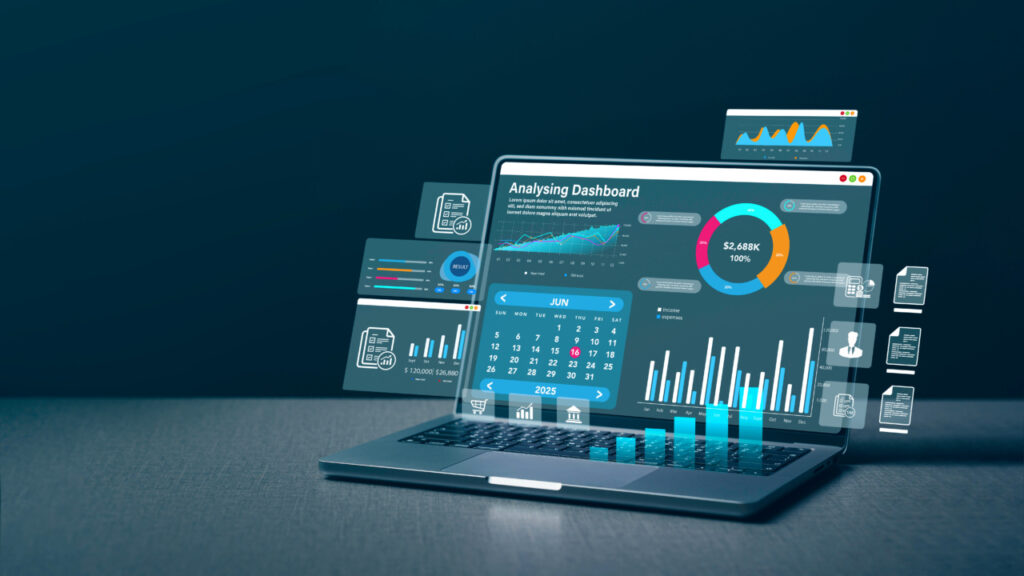In today’s fiercely competitive business environment, intuition alone doesn’t cut it anymore when it comes to making decisions – you need numbers. With the exponential wave of data, being able to turn big data into actionable insights is a defining edge. At the core of this shift is business analytics – a discipline that has developed apace as the strategic linchpin of contemporary business decision-making.
This article investigates how business analytics enable wrapped choices, strategy, and innovation. If you’re a mid-career professional or fresh graduate, recognizing the importance of Business Analytics and investment in things like a Post Graduate Program in Business Analytics, and Business and leadership courses can have you leapfrog your career. Advance your professional journey with a Post Graduate Program in Business Analysis, designed to equip you with the tools to lead data-driven decision-making
What Is Business Analytics?
Business analysis is a process of statistical methods used for interpreting data and getting useful information for business decisions. It is a confluence of business intelligence, predictive modeling and data mining that help businesses to make smarter decisions.
Unlike simple data analysis, which tends to stop at what happened, business analytics takes a deeper look—answering why the data looks the way it does and how it’s relevant to current and potential future strategy.
Basic Elements of Business Analytics
But in order to get why business analytics is so important, let’s dissect it a bit:
Descriptive Analytics
Emphasizes past performance and history from which to try and interpret future activity. This consists of dashboards, reports and KPI monitoring.
Diagnostic Analytics
Pries data to uncover the causes behind trends or errors—what happened to sales in Q2? Why are customers churning?
Predictive Analytics
Utilizes statistical models and predictive analytics to forecast trends based on historical patterns.
Prescriptive Analytics
Offers advice and real solutions to support decision making through optimization/simulation.
Collectively, these elements allow organizations not just to understand where they are, but to plan where they’re going and how they will get there.
How Important Is Business Analytics in Data-Based Decision Making
Converting data to useful information
Data mining:Today’s businesses create an incredible amount of data from their operations, customers, competition and marketing. It’s just noise without business analytics. Analytics is the tool that can cut through the noise and convert information into a strategy.
OPERATIONAL EFFICIENCY IMPROVEMENTS
Business analytics helps to pinpoint inefficiencies across departments — from the supply chain to financial forecasting — to help companies better allocate resources.
Improving Customer Experience
By analyzing consumer behavior, demand, and engagement data, companies can have a view of hyper-personalized marketing campaigns and product development.
Driving Innovation
Analytics users are more agile and innovative. They mitigate risk and expedite go-to-market strategies by experimenting and validating new ideas with actual data.
Supporting Strategic Planning
Today, business analysis is an essential part of long-term business planning. They are predictive in nature, helping leaders to anticipate market shifts, adapt activities and formulate well-informed competitive strategies. Many organizations strengthen this process by relying on reliable North Carolina IT services that ensure their data systems run smoothly and support informed decision-making.
Applications of Business Analytics in the Real World
In highly diversified fields, it’s no surprise that business analytics is increasingly transforming the way decisions are being made:
Retail: Predicting demand, inventory management, offering personalized shopping experiences.
Health: Predictive diagnosis and cost reduction to improve patient care.
Finance: Fraud detection, risk management, investment strategies.
Manufacturing: Minimising downtime, enhancing quality assurance and optimising production.
For companies that are business-analytics oriented, the ability to make decisions quickly based in fact enables them to outstrip competitors, and nimbly adjust to the ebbs and flows of the marketplace.
The Effective Business Analyst: Tools and Techniques
A successful business analyst or analytics-driven business leader must learn to deliver a hybrid of the technical and the soft as he or she becomes more integrated within an organization:
- Interpreting and visualizing data (excel, tableau, powerbi)
- Statistical modelling (R, python and SAS)
- Business process comprehension
- Communications and stakeholder engagement
- Analytical and critical thinking
These are precisely the skills imparted in a comprehensive Post Graduate Program in Business Analysis that is perfect for professionals who wish to forge a high–impact career that blurs the line between data and strategy.
The Role Of Education – Why You Need A Post Graduate Program In Business Analysis
Whether you want to land a new job, or aim to move up in the hierarchy, attending a Post Graduate Program in Business Analysis will give you the skills, tools, frameworks, and methodologies that employers expect.
Benefits of doing Post Graduate course in Business Analysis:
- Extensive training in data analytics tools and methods
- Level and Hands-On Experience Real-World Case Studies and Capstone Projects
- Familiar with Agile, Scrum and design thinking
- Career mentoring and job placement assistance
- Appropriate credential that increases credibility and international recognition
Most of them are developed in conjunction with leading industry experts and business schools so the content is highly relevant and current.
Filling the Gaps with Business and Leadership Classes
So while analytics is important, data doesn’t make decisions on its own — leaders do. This is why business and leadership courses are important for developing strategic thinking and leadership skills.
These classes help professionals to:
- Drive big data revolution in organizations and be at the forefront of it
- Effectively articulate insights across teams
- Match the analytic results to the business requirements
- Impact executive-level decision making
By adding analytics education to your leadership development, you can elevate yourself out of the technician role and enter the realm of a strategic adviser.
The requirement for analytics experts is rising the world over whether it is in the UAE, India, Europe or America. McKinsey and LinkedIn ranks professions such as Business Analyst, Data Analyst and Analytics Manager among the top in-demand jobs of the decade.
Potential Career Paths:
- Business Analyst
- Data Analyst
- Business Intelligence Analyst
- Product Analyst
- Strategy Consultant
- Analytics Manager
- Seasoned Chief Data Officer
Whether you are a fresh graduate or a business professional with a few years of work experience, a Post Graduate Program in Business Analysis can help you fast track into these high demand roles.
In Business Analytics, You Will Master These Tools
Analysts today must be fluent across a variety of tools that are used to support advanced analytics.
Excel (advanced Excel modeling, pivot tables, dashboards)
SQL (database queries)
Python or R (e.g., for statistical computing)
POWER BI/TABLEAU (Data Visualization)
JIRA/Confluence (for Agile project management)
SAS/SPSS (for predicting)
Skill up on these tools and you raise your profile and unlock opportunities in a wide range of industries — from tech and finance to health care and retail.
The Time Is Ripe for Analytics
The world is being digitized, and at the heart is data. Companies are pouring resources into being able to ‘go the last mile’ with their data.” Here’s why you should take action now:
High ROI: analytics professionals typically earn 20–40% more than their non-technical counterparts.
Worldwide opportunities: From working remotely to international expansion, your skill set is needed around the world.
Future-Proof Career: As AI and automation develop, understanding and responding to data will continue to be an exclusively human advantage.
Whether it’s through a Post Graduate Program in Business Analysis or adding to your arsenal of skills by taking up Business and leadership courses, you are gearing up for a career that’s future-proof and impactful!
Final Thoughts
Business analytics is no longer an ancillary function—it’s the core of contemporary business strategy. This is what leaders use to make intelligent decisions, allocate resources, delight customers, and ultimately outperform competitors.
If you’re serious about joining the data revolution, it’s the right time to boost your career with a Post Graduate Program in Business Analysis or upskill with courses in Business and Leadership. These courses will take your technical skills, and strategic know-how, to the next level — making you a high impact boss in any industry.






